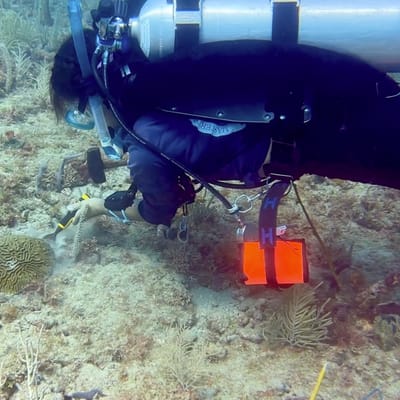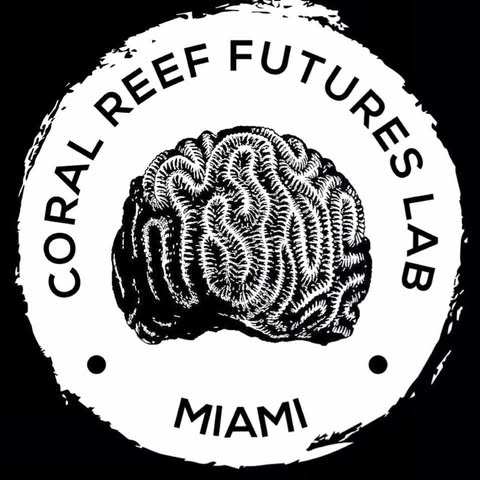Coral Relocation and Dredging Mitigation with The UM Coral Reef Futures Lab
SeaKeepers' Vessel DISCOVERY II
Fort Lauderdale, FL
June 25 -27, 2025
Program Overview
South Florida has experienced an increase in coastal infrastructure projects to be able to keep up with the state’s rapid economic growth. One such project, the Port Everglades Navigation Improvements Project (PENIP), seeks to widen and deepen Port Everglades to accommodate larger ship classes in and out of Fort Lauderdale. This dredging project has a large ecological footprint, impacting approximately 8 million corals (1.4 million of which are within the “100% functional loss” zone). The coral communities within the scope of the project have adapted to living in marginal conditions, as they are frequently exposed to heightened turbidity levels, high temperature variability, and frequent sediment deposition – making them extremely resilient and biologically valuable. The research being conducted by the University of Miami’s Coral Reef Futures Lab seeks to find the ideal relocation and restoration pipeline for corals that will be impacted and displaced by PENIP.
Application
Researchers will relocate the corals collected at Port Everglades to four different rearing environments: an artificial reef structure, a nearshore reef, an ex-situ nursery, and an in-situ nursery. There, they will be monitored for growth, survivorship, and symbiont community composition. The project aims to:
- Identify the most effective restoration pipeline for corals originating from Port Everglades
- Monitor symbiont communities, long-term growth, and survivorship across diverse outplant environments
- Evaluate how different rearing/outplanting environments influence coral thermal tolerance (i.e. is thermal tolerance maintained, increased, or decreased as a result of outplanting environment)
- Characterize long-term shifts and dynamics in symbiont communities at each restoration site
Expedition Summary
From June 25th - 27th, 2025, The International SeaKeepers Society partnered with the University of Miami’s Coral Reef Futures Lab to collect corals from shallow reefs immediately north and south of Port Everglades, Fort Lauderdale, areas which are slated for impact under the Port Everglades Navigation Improvements Project. Over the course of three outings aboard SeaKeepers’ vessel, DISCOVERY II, research teams successfully collected 86 corals. All collections were conducted under the Florida Fish and Wildlife Conservation Commission’s Stock Collection and Release Special Activity License for Coral Nursery Activities permit (SAL-24-2243D-SCRP).
Dive teams targeted Pseudodiploria clivosa, Pseudodiploria strigosa, Solenastrea bournoni, and Montastrea cavernosa based on prior DRM surveys conducted in the area. Using a hammer and chisel, dive teams carefully and safely removed coral from their substrates. Once removed, the corals were tagged and kept in coolers onboard the DISCOVERY II, before being transported back to the university of Miami’s ex-situ nursery facility. The corals would later be fragmented, mounted onto coral plugs, and outplanted at either an artificial reef structure, a nearshore reef, or kept at either the University of Miami’s in-situ or ex-situ nursery (to be outplanted after a six-month grow out period).
Location
Port Everglades, Fort Lauderdale, FL
Duration of Project
3 days of coral collection
Leadership
Research Team
- Dr. Andrew Baker
- Fabrizio Lepiz Conejo
- Sophia Lee
- Sierra Tompkins
- Dr. Alexandra Wen
- Bailey Marquardt
- Emma DeLillo
- Julianna Kopp



You must be logged in to post a comment.